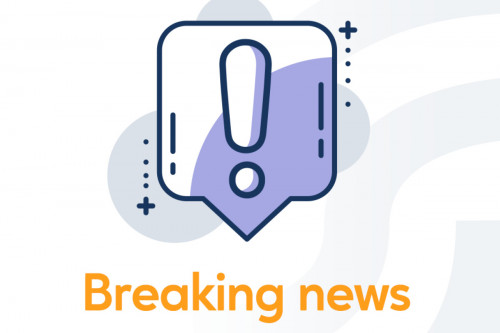Effective May 11, 2023, the COVID-19 Public Health Emergency (PHE) ended in the United States.
This, of course, does not mean that COVID-19 is no longer a health threat. But it does mean that certain waivers and exemptions that the Centers for Medicare and Medicaid Services (CMS) put in place when the PHE was declared Jan. 31, 2020, might have expired or changed.
For professionals who provide behavioral health telehealth services, the end of the PHE may impact how these services are provided and funded.
Important note: As you review the information below, please take careful note of the deadlines for each upcoming change. Some changes will go into effect immediately or shortly after the PHE ends, some will not occur until the end of 2023, and others are not scheduled until the end of 2024.
Can Behavioral Health Organizations Still Offer Telephone Counseling?
When the PHE was in effect, healthcare providers were permitted to provide some telehealth services via audio only (i.e. telephone counseling). When the PHE ended, CMS reverted to the pre-pandemic requirement that most services must be provided via audio-visual technology, with providers and patients able to both see and speak with each other.
One exception to this policy reversion involves behavioral healthcare.
The delivery of behavioral health telehealth services via telephone or other audio-only technologies will continue to be permitted, at least through Dec. 31, 2024.
Will Organizations Need to Start Using HIPAA-Compliant Technology for Behavioral Health Telehealth Services?
During the PHE, organizations were able to use virtually any standard videoconferencing service or platform to conduct behavioral health telehealth services. When the PHE ended on May 11, 2023, organizations will have 90 days to begin using HIPAA-compliant technology to provide behavioral health telehealth services.
Under this notice, covered healthcare providers must use technology vendors that are HIPAA-compliant and will enter into HIPAA business associate agreements in connection with the provision of their HIPPA-compliant video communication products. CMS will only reimburse behavioral health telehealth services that are provided via authorized HIPAA-compliant software.
There is a proposal for a 90-day grace period.
Will Behavioral Health Telehealth Services Be Limited to Patients in Certain Areas?
Prior to the declaration of the public health emergency, CMS funded behavioral health telehealth services only for patients who were located in certain rural areas. This requirement was waived during the PHE, and the waiver will remain active at least through Dec. 31, 2024.
For behavioral health telehealth services, originating site geographic restrictions are permanently waived. For behavioral health providers, this means that all patients’ homes will continue to qualify as acceptable “originating sites” for purposes of CMS reimbursement even after the PHE ended in May 2023.
However, the level at which CMS will reimburse providers for non-facility-based telehealth services may change.
When the PHE went into effect, CMS authorized a higher reimbursement rate for telehealth services that were delivered to a patient’s home. The reimbursement rate for these services may revert to pre-pandemic levels once the PHE is no longer in effect.
Will Clinicians Need to Provide Behavioral Health Telehealth Services On-Site?
During the COVID-19 PHE, CMS temporarily amended the definition of “direct supervision” to include supervision via virtual presence through audio/video real-time communications technology. This was particularly helpful for services furnished “incident to” the services of a physician, which would typically require the supervising physician to be physically present in the same office suite.
The amended definition has been extended through the year in which the PHE ends, making the expected expiration date December 31, 2023. The regulatory definition of direct supervision requires the supervising physician or practitioner to be “immediately available” to furnish assistance and direction during the service.
The requirement to be immediately available for direct supervision may no longer be met through virtual presence by the end of 2023.
Are In-Person Counseling Sessions Still Waived?
Prior to the PHE, behavioral health providers were required to conduct in-person sessions with telehealth patients according to the following schedule:
- At least once in the six-month period before the patient began to receive telehealth services.
- At least once every 12 months as the patient continues to receive telehealth services.
These required sessions were waived during the PHE. That waiver will remain in place at least through Dec. 31, 2024.
Can Organizations Still Prescribe Controlled Substances via Behavioral Health Telehealth?
Qualified healthcare providers are currently authorized to prescribe certain controlled substances (such as Narcan and buprenorphine) via behavioral health telehealth.
Now that the the PHE has ended, this authorization will be limited to 30-day prescriptions only, after which a behavioral health provider must conduct an in-person session with the patient.
Please note that this applies only to certain controlled substances. Most prescriptions for behavioral health disorders, such as those for antidepressants and anti-anxiety medications, will not be subject to the 30-day limit.
Watch for Future CMS Behavioral Health Telehealth Updates
In addition to heeding the deadlines and grace periods noted in each of the sections above, it is also imperative that behavioral health organizations remain vigilant about future changes to CMS requirements or the alteration of previously established timelines.
In the aftermath of the end of the PHE, it is likely that additional adjustments will be made. The SimiTree Behavioral Health team will continue to closely monitor this situation, and we will post new or updated information as it becomes available.
How SimiTree Behavioral Health Can Help
Let's work together to improve the health of your organization. At SimiTree Behavioral Health, we help mental health and substance use treatment facilities grow their businesses through our extensive menu of solutions.
Talk to an expert today by calling us at 1.800.949.0388 or complete the form below.

